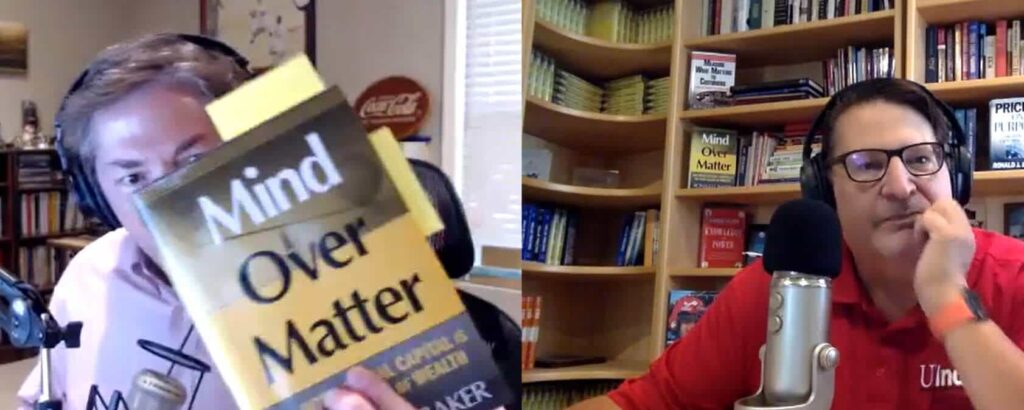One of Mark’s favorite books in 2021 has been Mind Over Matter by Ron Baker, a best-selling author and the co-host of The Soul of Enterprise weekly radio show. In this show, we discuss why studying intellectual capital is important along with its three primary components – human, structural, and social. As Ron says, there’s nothing more pragmatic than a good theory. Accordingly, our chat is far from conceptual or abstract.
Interview Questions and Key Ideas
- Why study economics?
- Why does Marx still have a stranglehold on western civilization?
- Ric Payne’s services firm economic formula and a better one
- Why The Firm of the Future was written
- Non-rival assets
- The importance of theories in business
- Where does value come from and the difference between IP and IC
- Negative intellectual capital
- Tacit knowledge
- The hardest aspect of studying intellectual capital (measuring it)
- After Action Reviews
- Building the invisible balance sheet
There are no solutions. There are only tradeoffs.
Thomas Sowell
The Three Components of Intellectual Capital
Why study intellectual capital? I thought Ron gave one of the most captivating responses I’ve ever heard on this matter. He said that 80% of the wealth in the largest economies in the world is in our minds, not (necessarily) in natural resources. Accordingly, what should we be studying? The 80% or the 20%?
Once we embark on a journey to studying intellectual, the approach Ron takes in his book, Mind Over Matter, is to break down intellectual capital (IC) into three components as such:
- Human Capital – between our ears … our ongoing ability to learn and grow.
- Structural Capital – what’s left in the business once people go home at night. Parts of structural capital can be found on the balance sheet.
- Social Capital – alumni, customers, vendors
Ron reminds his readers of the interplay of these three capitals since IC is a verb, not a noun.
The Intellectual Capitalism Series
Mind Over Matter is the third book of Ron Baker’s Intellectual Capitalism Series. The first book in the series is Pricing on Purpose: Creating and Capturing Value. The second book is Measure What Matters to Customers: Using Key Predictive Indicators.



The Lightning Round
We brought back a lighting round during this episode by listing one of the three intellectual capitals and a well-known brand. Ron provided feedback on what came to mind during these intellectual wine and cheese pairings. Here’s the list:
- Human Capital and Amazon
- Social Capital and the NFL
- Structural Capital and Toyota
Books Mentioned on the Show




Relevant Links
- The Soul of Enterprise podcast
- The VeraSage Institute
- Ron’s LinkedIn profile
- Twitter feed
- Amazon author page
One of our Top 10 downloads is our first conversation with Ron in 2020. In that show, we talked about NPS, measures and measurement, his books, pricing, and much more.


Leave a Reply